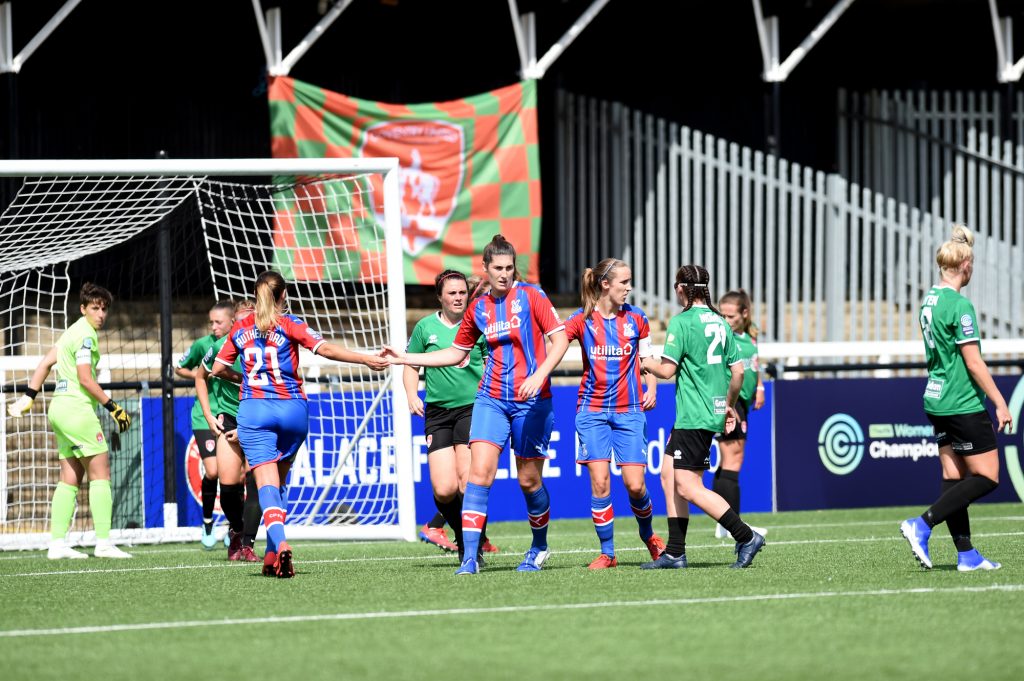From our experiences across Europe of assessing the fan experience at Women’s football, the overall picture balances out at ‘poor to average’. Sure, there are exceptions, but they’re almost always the result of engaging volunteers (at clubs like Durham in northern England and IL Sandviken IF in Norway). We rarely find anything in the experience that shouts out loud ‘we’re working hard on growing the club.’

Creating Great Fan Experiences: The Missing Link in the Women's Game?

Mark Bradley
@fanexperienceco
Mark is a regular contributor in FC Business magazine. He set up The Fan Experience Company in 2005, and they now assess over 350 games each season in 13 countries, including the EFL, FAWSL and Championship.
The news that the Premier League is set to support the top two tiers of English women’s football with £1 million will be welcomed with open arms at every one of the 21 competing clubs. The money is being provided to help the FA start next season’s competition by funding Coronavirus testing: an unexpected cost that has been one of the key factors influencing other leagues’ decisions on whether to cut short or complete.
Women’s football has made remarkable progress in recent years. Many who enjoy attending matches will not know of its difficult past: its banning in England for several decades and other prejudiced-led obstacles, but since the Women’s World Cup in France in 2019, its profile has rocketed.
This phenomenon is not just the preserve of England. Newly launched leagues such as the Gjensidige Kvindeliga in Denmark, the Toppserien in Norway and the National League in Finland have all seen significant lifts in interest, investment and profile. With Real Madrid today announcing the launch of its women’s team, the Spanish women’s game is also in the spotlight.
The question remains: how do we ensure this is all sustainable: that women’s football becomes a thriving centre of innovation showcasing everything that is good about the sport and establishing clubs in every city and town as community hubs: homes for diversity and places where (to paraphrase the vision of the Danish top tier) ‘girls can dare to dream’.
The key for us is to ensure there is a balance between marketing the game and the experience that awaits those to whom the marketing is aimed. For our 15 years of existence we have focused on the impact that a good fan experience can make on crowd numbers. We’ve not only talked about it, but made it happen.
The EFL Family Excellence scheme continues to be a benchmark for transforming perceptions of the second, third and fourth tiers of the men’s game among key target groups in England. In this case, over the first decade of the scheme, there was a 37% increase in junior attendance (nearly 6 million new fans from a group football had previously found difficult to retain). The trick? Designing the experience to meet their needs.
The dangers of prioritising marketing over fan experience are many. Think about it: make it all about the football and, if the football fails, your USP disappears. This is one of the errors being made across Europe in the Women’s game. Take the investment in branding and marketing and compare it with the investment in the fan experience. Look at National Association budgets for brand and marketing and compare them with budgets for investing in the experience.
One of our assessors recently compared the marketing approaches of one National Association for both its men’s Cup and its women’s top tier. The former was imaginative, interactive and appealing; the latter was one image on one page. As she said, ‘why should I be interested in this when the evidence shows you’re not that much interested in it in the first place?’
But you’re also wasting money if you spend it on marketing games and the experience is poor. You’re just recycling the existing fan base, which is fine if you’re part of the sporting establishment. But that’s not yet the case for the women’s game. We need to acknowledge that people have choices these days. They may wish to consume women’s football via TV or streaming, but that doesn’t help clubs much.
Clearly, if we show our audience positive engaging and innovative imagery and send out positive messaging, they’ll show interest and, among younger fans, an affinity will grow with players but, as we know from the men’s game, you have choices as a fan nowadays. Consumption is not just attendance. It’s more likely to take the form of streaming, playing FIFA 2020, eSports or Fantasy Football. Unless you’re going to create a franchise and invest as a ‘league’, then clubs must be responsible for their own sustainability.
Make it about the experience and you have control. Make the experience your USP and you attract what Daniel Lambert of Dublin’s Bohemians (another impending podcast guest) describes as ‘high quality fans’: people who buy in to what the club is doing; forgive you when you make a mistake; volunteer; contribute; advocate and come up with ideas that they believe will help you grow your presence and diversify your reach.
By creating memorable, high quality experiences you will attract new fans. Their advocacy will lead to increased attendances and less reliance on the scoreline and this will be a factor in your path to sustainability as a club.
As Megan Rapinoe said in a Guardian interview last year:
“If the only thing that’s said about us is how inspiring we are to little girls, then our marketing plan is a complete and utter failure. Make me want to go to the game.”
The biggest mistake the women’s game could make is to become complacent. It needs to ensure that its games are the epicentre of the movement: that matches are the ways in which it flexes its values, its beliefs and what makes it different. Whether that be through providing information to prospective fans in imaginative ways; issuing match day schedules to describe the value of attending or to use ‘up and coming’ young female players as spokespersons for the club, it needs to be authentic, relevant and unique.
Rather than selling the underwhelming food choices you’d get at the men’s game, why not provide something based on principles such as sustainable eating; healthy choices; multicultural menus and gin? Yes, gin. We know one club whose fortunes have been transformed by looking at what women would actually pay for. Not lager and crisps, but gin and olives.
Rather than let passing fans guess that there’s a game on, why not splash the club’s colours all around; put up signage and have volunteers showing you the way?
There are green shoots. There are clubs who are beginning to build a unique offer; thinking of themselves as a community destination rather than a football match and reflecting that in the match day experience, like Lewes FC (you can hear their chairperson Stuart Fuller on our podcast soon). The problem is that there are too many who think that because there is a game on, people will come.
Kevin Costner may have built it, but only in films do they actually come. The Covid19 pandemic is creating paradigm shifts around us. Some things will survive, some will stay the same and some will become anachronisms. The women’s game has everything going for it, but it must evolve to thrive.
Investing in the fan experience would be a sign of that intention.
The Fan Experience Company podcast series covers these issues and more as we explore ways to improve the match day experience at all levels of the game. To see the full list of available podcasts, click here.
Get in Touch
To find out more about any of our services or to discover how we can tailor one to your specific requirements, please contact us below.
© The Fan Experience Company 2020
